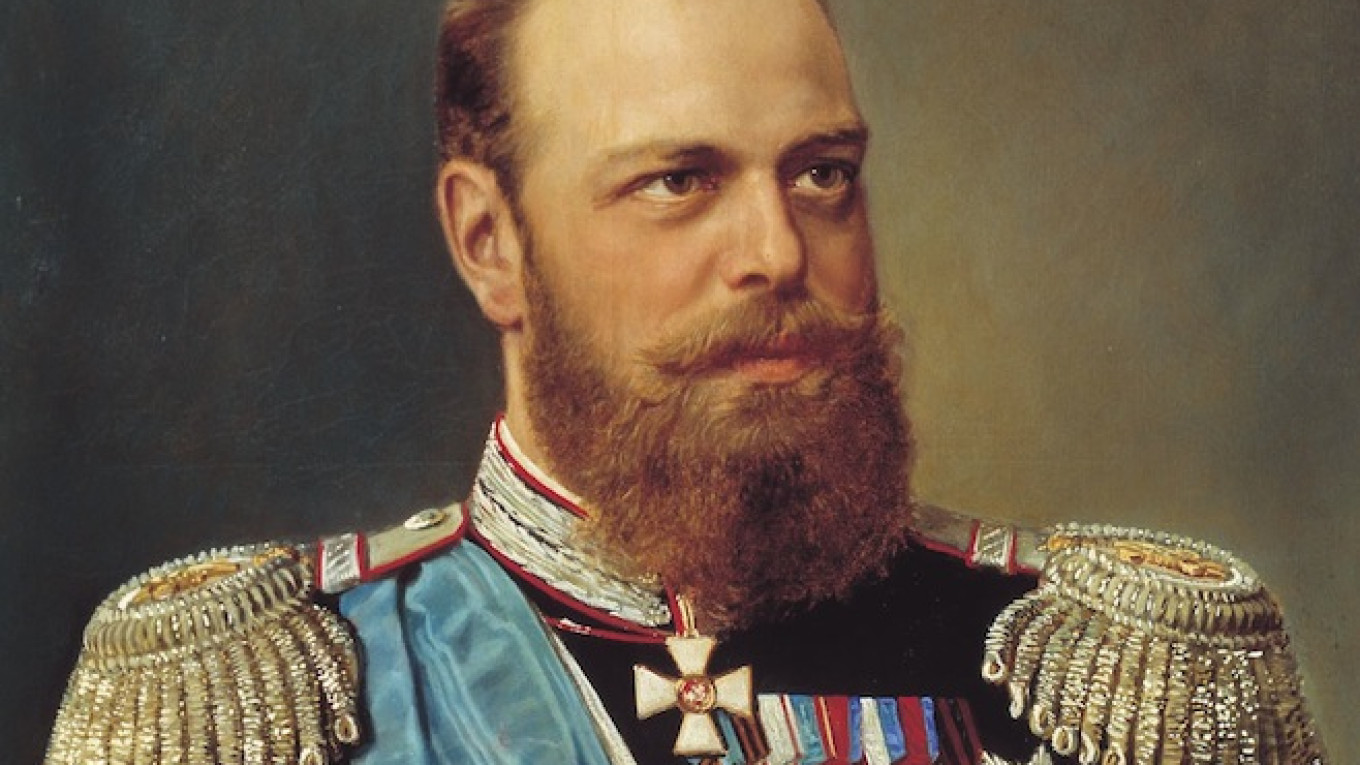Russian investigators said Monday that they will exhume the remains of Russian Tsar Alexander III to confirm the identity of two of his grandchildren, who were executed alongside their father, Tsar Nicholas II, by the Bolsheviks in 1918.
The bodies of Nicholas II and his wife Alexandra were disinterred from their resting places in St. Petersburg's Peter and Paul Fortress by Russia's Investigative Committee last month.
The probe into the identities of the two royal children, Tsarevich Alexei and Grand Duchess Maria Nikolayevna, was requested by the Russian Orthodox Church in the face of historical consensus — and the enquiries have been criticized by historians as unnecessary and disrespectful.
“The state does not want a conflict with the Russian Orthodox Church,” said Nikolai Svanidze, a prominent historian and member of Russia's Public Chamber. “It's not a historical or a genealogical question but a political one."
A resurgent Orthodox Church has taken an increasingly prominent role in Russian society in recent years, and critics suggest that it wields an undue influence over policy-making in a country where church and state are separate under the Constitution.
Alexander III became tsar in 1881 after his father was killed by a terrorist's bomb. His 13-year reign was known for its deep conservatism. He was succeeded by his eldest son, Nicholas II, in 1894.
The exhumation is likely to take place in the second half of November, senior investigator Vladimir Solovyov said Monday, news agency Interfax reported.
“At the initiative of his holiness the Patriarch, a decision has been made to open the tomb of Emperor Alexander III. Everything depends on the technical conditions,” Solovyov said.
The exhumation was reportedly backed by the Russian Imperial House, an organization that represents living descendants of the Romanovs. "This inspires hope that the mistakes of the past will be taken into account," Alexander Zakatov, a representative of the organization, was quoted as saying by Interfax.
Most of the remains of the imperial family were discovered near the Urals city of Yekaterinburg (then known as Sverdlovsk) in 1979, though it was not until 1991 that they were formally identified. Alexei and Maria were only unearthed in 2007. After being rounded up and killed in a basement by the Bolsheviks during fighting in the Civil War, the bodies of Russia's last tsar and his family were dowsed in acid and burned before being buried.
The remains of the two children, currently being held by Russia's State Archive, were due to be buried with the rest of the imperial family this month, but the ceremony was delayed because of protestations from the Orthodox Church, which insisted on additional research into their identity.
The Church canonized Nicholas II, his wife and their five children — including Maria and Alexei — in 2000 after a debate over the family's role in hastening the onset of revolution.
In July, Prime Minister Dmitry Medvedev ordered the creation of a working group to look into the question of the remains of the imperial family, and Russia's powerful Investigative Committee reopened a criminal case into their deaths on Sept. 23. The case was originally closed in 2008.
“The Investigative Committee is always ready to help the Church,” investigator Solovyov told state-owned Rossiiskaya Gazeta earlier this month. “Orthodox Church representatives have announced more than once that there are doubts about the authenticity of the remains because Church scholars were not involved in the process,” he said.
As part of the probe, Nicholas II and his wife were exhumed last month in the presence of senior Orthodox officials in St. Petersburg. Investigators have also taken samples from a blood-soaked coat that Tsar Alexander II — Maria and Alexander's great-grandfather — was wearing when he was fatally injured by the terrorist's bomb in 1881, and are reportedly seeking access to the remains of the last empress' sister, Grand Duchess Elisabeth of Russia, which are currently in Israel.
Investigators removed a small fragment of the head of Nicholas II during last month's exhumation in order to disprove a theory that the tsar's head was cut off after his execution and brought to Moscow to be shown to Lenin, investigator Solovyov said earlier this month.
But historians have criticized the current investigation into the identities of the last Romanov family members as baffling because of a large body of conclusive historical work on the subject.
“I have no doubts [about the identities of the bodies] and every specialist — historians, criminologists, genealogists — have no doubts because all expert examinations have been carried out,” said Yevgeny Pchelov, a historian and expert on the Romanovs at the Russian State University for the Humanities.
“Respect for professionalism has been completely lost in our society,” he said.
Contact the author at h.amos@imedia.ru
A Message from The Moscow Times:
Dear readers,
We are facing unprecedented challenges. Russia's Prosecutor General's Office has designated The Moscow Times as an "undesirable" organization, criminalizing our work and putting our staff at risk of prosecution. This follows our earlier unjust labeling as a "foreign agent."
These actions are direct attempts to silence independent journalism in Russia. The authorities claim our work "discredits the decisions of the Russian leadership." We see things differently: we strive to provide accurate, unbiased reporting on Russia.
We, the journalists of The Moscow Times, refuse to be silenced. But to continue our work, we need your help.
Your support, no matter how small, makes a world of difference. If you can, please support us monthly starting from just $2. It's quick to set up, and every contribution makes a significant impact.
By supporting The Moscow Times, you're defending open, independent journalism in the face of repression. Thank you for standing with us.
Remind me later.


